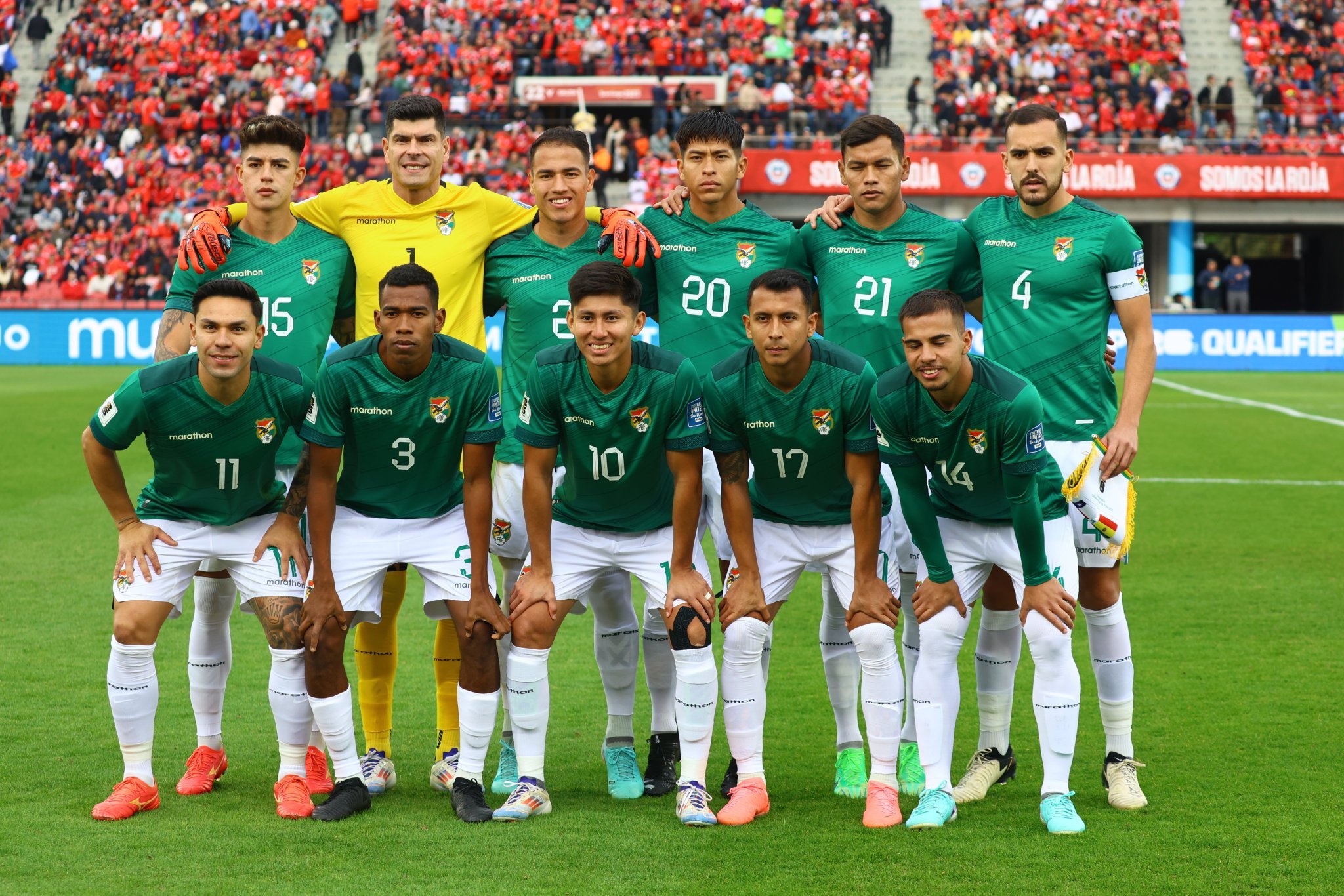In a shocking turn of events that will go down in South American football history, Bolivia achieved a remarkable 2-1 away victory against Chile in the 2026 World Cup Qualifiers.
This win marks several unprecedented milestones for the Bolivian national team, cementing their place in football lore.
The match, played in Santiago, was charged with tension stemming from long-standing rivalries rooted in the 19th-century War of the Pacific. Bolivia, traditionally considered the underdogs of South American football and the poorest nation in the continent, defied all odds to secure their first away win in an official match since 1993 - an astounding 31-year drought.

A historic night for Bolivian and South American football. Bolivia’s players before the match (Photo courtesy: The Bolivian Football Association)
First half madness
Carmelo Algarañaz opened the scoring early for Bolivia, sending shockwaves through the Chilean crowd. However, the visitors faced adversity when their goalkeeper, Carlos Lampe, suffered a devastating Achilles tendon injury and had to be substituted. Chile equalized through veteran striker Eduardo Vargas in a controversial play that sparked debate among fans and pundits alike.
Just before halftime, Bolivia struck back in spectacular fashion. Miguelito Terceros, who plays for Brazilian club Santos, finished off a blistering counterattack with a goal of breathtaking beauty, restoring Bolivia's lead. The team then showcased remarkable resilience and determination, fighting tooth and nail to preserve their advantage until the final whistle.
This victory marks the first time Bolivia has ever defeated Chile on Chilean soil, a feat that seemed nearly impossible given the historical dominance of the home team. Moreover, Bolivia stands alone as the only South American nation to win all of its matches during this international break, completing a perfect run that has sent shockwaves through the continent.
More than a win
The significance of this win cannot be overstated for Bolivia, a nation that has long struggled both economically and in international football. This triumph against a traditional powerhouse like Chile on their home turf represents a monumental shift in the landscape of South American football and injects new life into Bolivia's World Cup qualification campaign.
As the final whistle blew in Santiago, it signaled not just the end of a match, but potentially the beginning of a new era for Bolivian football. The team's performance has captured the imagination of fans across South America and beyond, proving that in football, anything is possible.




























